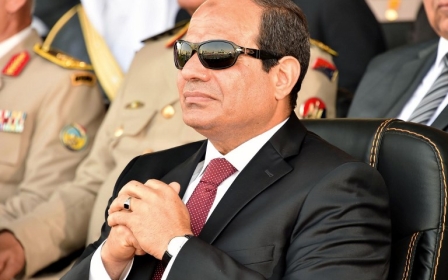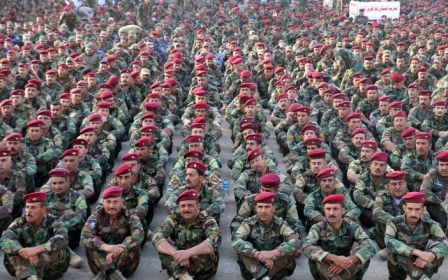Arabic press view: Israeli firms eye investment in Saudi tech city
Is Israeli boycott coming to an end?
The Jerusalem Post says that a large number of Israeli firms are holding talks with the Saudi Public Investment Fund.
The newspaper reported that the participation of Israeli companies would end a decades-long boycott.
The normalisation of relations between the two countries is a sensitive issue, it added: Israeli companies are wary about speaking openly and publicly about the details of the deal.
London-based news website Arabi21 reported that interest is being driven by Saudi’s $500bn Neom city project, which was announced last week.
Sri Lankan woman found in Saudi Arabia after 17 years
A Sri Lankan woman has returned home from Saudi Arabia after not being heard of by her family for 17 years, according to the Kuwaiti newspaper al-Anbaa.
The unnamed Sri Lankan woman moved to Saudi in 2000 and has worked since then in a remote desert area as a shepherd.
She had no contact with her family until Saudi authorities received a report that she was missing. It took 18 months to locate her.
The maid returned home on Friday after her Saudi sponsor agreed to pay her back-pay of about 3.6 million Sri Lankan rupees (around $23,250) – believed to be the biggest financial arrears paid to a Sri Lankan overseas worker.
After Islamic State: Foreign fighters with nowhere to go
The number of Islamic State (IS) fighters from outside Syria and Iraq has dropped dramatically, according to Saudi newspaper Al-Sharq Al-Awsat.
The group has lost its appeal to recruits after successive defeats, it added, including the fall of Raqqa on 17 October.
And while local members and officials have succeeded in reintegrating themselves back into society or else returned home, those from further afield now face limited options and significant risks due to differences in language, culture and behaviour.
Why did Sisi dismiss army commander?
The decision by Egyptian President Abdel-Fattah el-Sisi to dismiss his armed forces chief of staff is serious and ambiguous, reports the Al-Mesryon newspaper, and the reasons for it are not clear.
The move follows a deadly ambush of Egyptian troops desert outside Cairo by militants earlier this month in which at least 16 soldiers were killed. Some reports said more than 50 died.
The decision to dismiss Mahmoud Hegazy is part of a reorganisation of the military high command and paved the way for Sisi to appoint former defence ministry secretary general Mohammed Farid Hegazy as army chief of staff.
Mahmoud Hegazy, who is linked to Sisi through the marriage of their respective children, has been named as a presidential adviser.
* Arabic press review is a digest of reports that are not independently verified as accurate by Middle East Eye.
New MEE newsletter: Jerusalem Dispatch
Sign up to get the latest insights and analysis on Israel-Palestine, alongside Turkey Unpacked and other MEE newsletters
Middle East Eye delivers independent and unrivalled coverage and analysis of the Middle East, North Africa and beyond. To learn more about republishing this content and the associated fees, please fill out this form. More about MEE can be found here.




